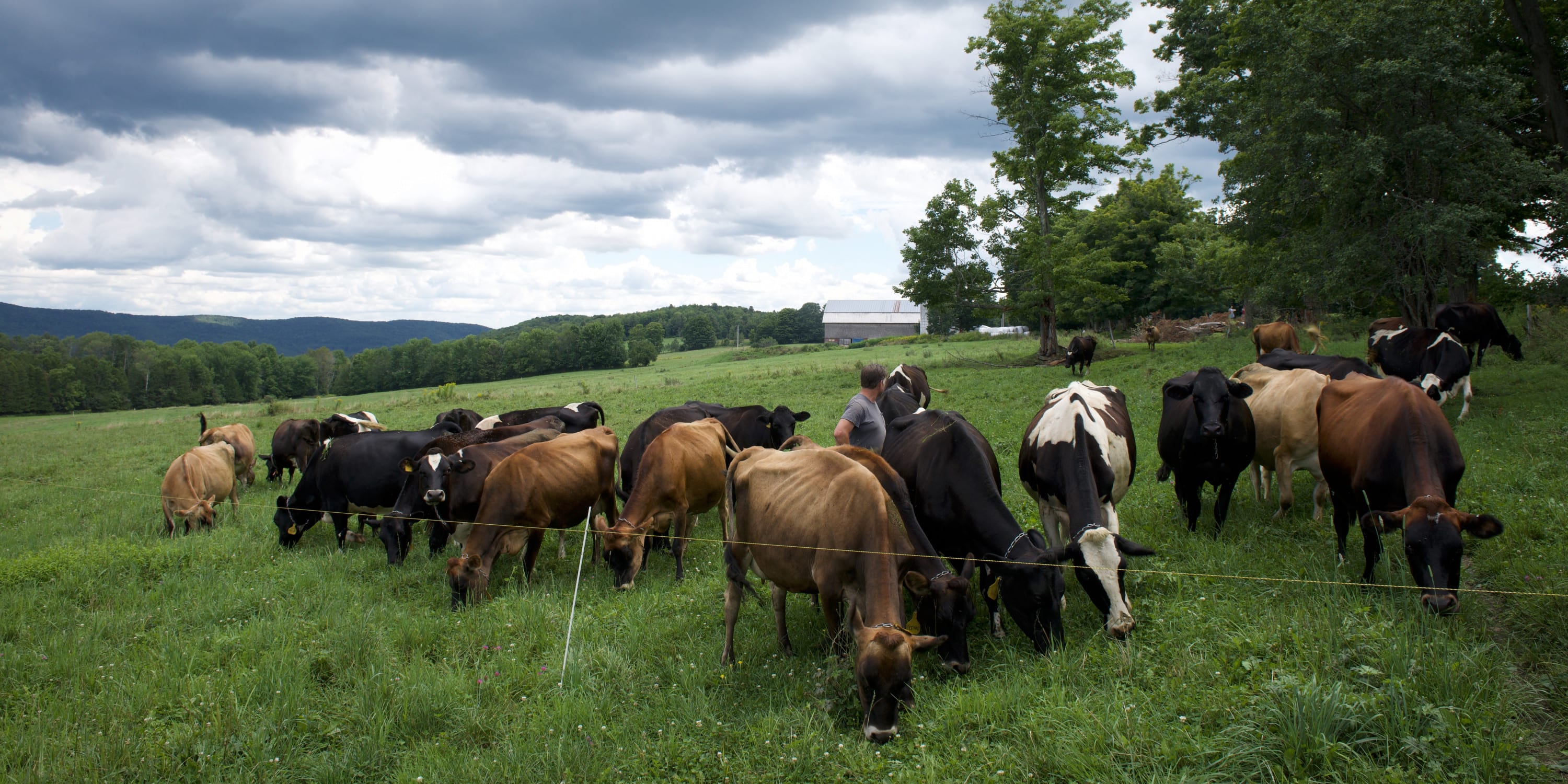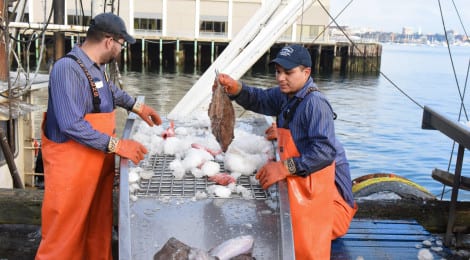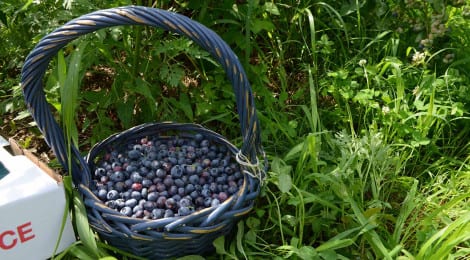
Food Vision Prize Profile
Hanging by a Shred: Supporting Regional Dairy Farms through Cheese Production
The idea is simple: Use the prize funds to purchase the equipment a local creamery needs to be able to supply pre-shredded mozzarella cheese for its campus accounts. The implications of this simple purchase, however, are far-reaching.
Narragansett Creamery, founded by the Federico family in Providence, RI, in 2007, currently supplies milk to – among others – Brown University. Brown uses this milk for its drinkable milk supply or as ingredients in foods such as fresh baked products. Other high-volume dairy products, such as shredded mozzarella cheese, must be purchased elsewhere because currently, Narragansett Creamery lacks the equipment to process the cheese in the ways that large scale purchasers like Brown require it. Funds from the New England Food Vision Prize can not only provide the equipment that is needed, but also support the mitigation of other supply chain challenges such as staff training and capacity, transportation, and production size and scale.
As Narragansett Creamery brings the production of this new product online, it will allow its institutional customers – including Brown and its project partners Roger Williams University and Smith College – to purchase more of its shredded mozzarella from within the region. But the benefits to this new capacity do not end there. The Federico family purchases milk from two New England dairy co-ops to make their cheeses, which source their milk from local dairy farms in eastern Connecticut, Rhode Island, and Massachusetts. Cheese-making requires approximately eight times as much milk as does using milk directly, such as in baked goods or for drinking. This project will increase the amount of local cheese produced within the region, and therefore exponentially increase the amount of local milk produced and utilized.
As Narragansett Creamery grows this capacity, it can service other institutional customers in the region. And these local institutions have some incentive to go local. When shredded mozzarella is purchased from outside of the region, the product requires additional cellulose and mold-inhibitor to help keep the cheese from spoiling as it travels long distances to its end users. This often impacts the flavor of the product negatively. Reducing the product travel time will allow Narragansett Creamery to explore other options to maintain the needed shelf life without the common chalky flavor of mold inhibitors.
The project team envisions utilizing a majority of the award funds for infrastructure, such as addressing the transportation and production issues that local producers face, securing contracts and agreements with vendors, and marketing the concept across campus. In the end, the New England Food Vision Prize is acting less as a means to purchase the food, and more as an investment in the capacity building of all involved, ensuring the impact of this project lives on well beyond the life of the prize.


